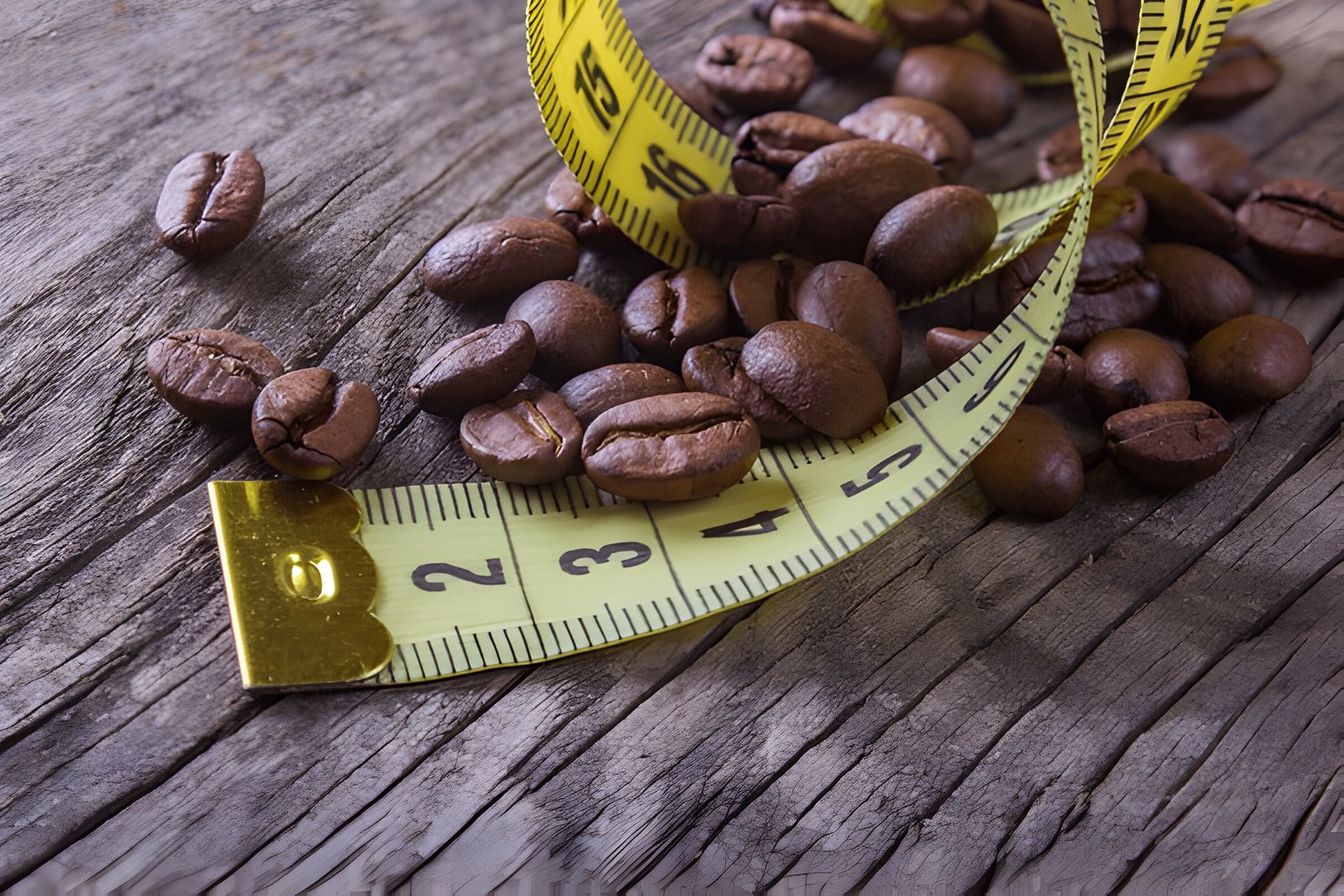
Image Credit : Shutter stock
Coffee lovers rejoice! There’s a new buzz in town, and it’s all about weight loss coffee. This innovative brew has gained popularity for its potential to help shed pounds while satisfying caffeine cravings. Weight loss coffee combines the energizing effects of regular coffee with ingredients that may support appetite suppression and fat burning, making it an appealing option for those looking to slim down.
What sets weight loss coffee apart from your average cup of joe? It often includes additives like vitamin C, green tea extract, or other natural compounds believed to boost metabolism and reduce cravings. Some brands even claim to have a “7-second coffee trick” or a “7 second coffee loophole” that can jumpstart weight loss efforts. While the effectiveness of these claims varies, many people are eager to try coffee for weight loss as part of their diet plan. Whether you’re interested in a pre-made weight loss coffee recipe or curious about what to add to coffee for weight loss, this article will explore the science, top brands, and how to include this trendy beverage in a healthy lifestyle.
The Science Behind Weight Loss Coffee

How Weight Loss Coffee Works
Weight loss coffee combines the energizing effects of caffeine with other ingredients to support weight loss efforts. Caffeine, the primary active compound in coffee, has a significant impact on metabolism and fat burning. It stimulates the nervous system, sending signals to fat cells to break down fat. This process increases blood levels of epinephrine (adrenaline), which travels through the bloodstream to fat tissues, prompting them to release fatty acids.
Key Ingredients in Weight Loss Coffee
- Caffeine: The main component that boosts metabolism and increases alertness.
- Chlorogenic Acid: Found abundantly in green coffee beans, it helps suppress appetite and break down fats more efficiently.
- Cinnamon: Adds flavor while reducing hyperglycemia and increasing fat burning.
- Coconut Oil: Contains medium-chain triglycerides (MCTs) that promote fat burning and contribute to the thermogenic effect of food.
- Collagen: A source of glycine, which may positively impact metabolism and improve skin and joint health.
Metabolic Boost from Weight Loss Coffee
Research shows that caffeine can increase the resting metabolic rate (RMR) by 3-11%, with larger doses having a greater effect. This metabolic boost is primarily caused by an increase in fat burning. One study found that caffeine increased fat burning by up to 29% in lean individuals and about 10% in obese individuals. However, the effect may decrease with age and regular consumption due to tolerance buildup.
Top Weight Loss Coffee Brands

Brand 1 Features and Benefits
Fine USA Green Tea & Coffee offers a unique blend that combines the benefits of coffee and green tea. This non-GMO formula contains catechins, chlorogenic acid, and caffeine, which may contribute to weight loss. Users can consume 1-3 packets daily with hot or cold water. The blend is less bitter than regular coffee and can be enjoyed with or without creamer.
Brand 2 Features and Benefits
Rapidfire Keto Coffee Pods are designed for those following a ketogenic diet. These pods contain MCT oil, grass-fed butter, and Himalayan salt, ingredients believed to support weight loss efforts and provide healthy fats. The formula aims to improve energy levels and metabolism, making it a potential aid in weight management.
Brand 3 Features and Benefits
Nature’s Craft Coffee Bean Extract provides the benefits of coffee without altering one’s typical morning routine. Made from unroasted beans, this green coffee extract offers antioxidants and an energy boost similar to standard coffee. It may also help curb appetite. The extract consists solely of green coffee beans, ensuring a high-quality, simple ingredient list.
How to Incorporate Weight Loss Coffee into Your Diet

Recommended Dosage
The recommended daily caffeine intake for most adults is up to 400 milligrams (mg), which is roughly equivalent to four 8-ounce cups of brewed coffee. For weight loss purposes, the Nutrition Twins suggest consuming between 200 to 400 mg of caffeine each day, depending on body size. This translates to about two to five cups of coffee. It’s important to note that the strength of the coffee can affect the caffeine content, so individuals should be mindful of their intake.
Best Time to Drink Weight Loss Coffee
The ideal time to consume weight loss coffee is in the morning, between 9:30 and 11:30 a.m. This timing aligns with the body’s natural cortisol production, which peaks in the morning and helps regulate the sleep-wake cycle. Drinking coffee during this period can potentially supercharge metabolism and increase weight loss potential. Additionally, consuming coffee in the morning may help suppress appetite, leading to reduced calorie intake throughout the day.
For those needing an afternoon boost, a second dose of caffeine can be beneficial. However, it’s crucial to avoid consuming caffeine after 4 p.m. to prevent sleep disturbances. Some individuals may find that drinking black coffee before exercise enhances workout performance and increases fat oxidation during physical activity.
Potential Side Effects
While weight loss coffee can offer benefits, it’s essential to be aware of potential side effects. Excessive caffeine consumption may lead to:
- Increased urination and potential dehydration
- Digestive issues such as diarrhea
- Caffeine dependence and withdrawal headaches
- Elevated heart rate and blood pressure
- Dizziness and anxiety
To minimize these side effects, individuals should stay within the recommended dosage guidelines, drink plenty of fluids, and consider pairing caffeine with L-theanine or other nootropics. It’s also advisable to consult with a healthcare professional before incorporating weight loss coffee into one’s diet, especially for those with pre-existing medical conditions or those taking medications that may interact with caffeine.
Combining Weight Loss Coffee with a Healthy Lifestyle

Balanced Diet Tips
To maximize the benefits of weight loss coffee, individuals should focus on maintaining a balanced diet. This includes incorporating foods from all five food groups: fruits, vegetables, grains, proteins, and dairy. Whole fruits and vegetables, such as raspberries, blueberries, broccoli, and carrots, provide essential nutrients and fiber. Whole grains like whole wheat pasta, oatmeal, and brown rice offer sustained energy. Lean proteins from sources like poultry, beans, eggs, and peanut butter support muscle health. Dairy products like yogurt and cheese provide calcium and additional protein.
It’s crucial to avoid refined carbohydrates and processed foods. Reading labels for hidden sugars, such as corn syrup, sucrose, dextrose, or maltose, helps in making informed choices. Gradually replacing processed foods with healthier alternatives, like swapping white rice for brown rice or air-popped popcorn for potato chips, can lead to significant improvements in diet quality.
Exercise Recommendations
Regular physical activity complements the effects of weight loss coffee. The recommended goal is at least 150 minutes of moderate activity or 75 minutes of vigorous activity per week. This can be broken down into manageable sections, such as 30 minutes of exercise daily. Activities should be enjoyable and can include walking, jogging, swimming, or biking.
Strength training is also essential for overall fitness and weight management. Exercises that engage the entire body, such as squats and lunges, are particularly effective. For those new to strength training, consulting a certified trainer can help in developing a safe and effective routine. Incorporating yoga or Pilates can further enhance strength and flexibility.
Sleep and Stress Management
Quality sleep plays a crucial role in weight management. Adults should aim for 7-9 hours of sleep nightly to maintain proper hormonal balance. Poor sleep can lead to increased production of cortisol, a stress hormone associated with weight gain, and can disrupt the balance of hunger-regulating hormones like ghrelin and leptin.
Stress management is equally important in a weight loss journey. Chronic stress can lead to elevated cortisol levels, which may increase appetite and cravings for high-fat and high-carb foods. Implementing stress-reduction techniques such as deep breathing, mindfulness, or spending time in nature can help mitigate these effects.
By combining weight loss coffee with a balanced diet, regular exercise, adequate sleep, and effective stress management, individuals can create a comprehensive approach to achieving and maintaining their weight loss goals.
Conclusion
Weight loss coffee has sparked a revolution in the world of diet beverages, offering a blend of caffeine and metabolism-boosting ingredients. This innovative brew has an influence on appetite suppression and fat burning, making it a popular choice for those looking to shed pounds. While various brands tout their unique formulas, the core benefits stem from caffeine’s ability to increase metabolic rate and promote fat oxidation. To get the most out of weight loss coffee, it’s crucial to drink it at the right time and in moderation.
However, it’s important to remember that weight loss coffee is not a magic solution. To see real results, it should be part of a well-rounded approach that includes a balanced diet, regular exercise, and good sleep habits. By combining these elements, individuals can create a sustainable lifestyle that supports their weight loss goals. In the end, weight loss coffee can be a helpful tool, but it’s the overall commitment to health that leads to lasting change.
FAQs
1. Which type of coffee can help accelerate weight loss?
Black coffee is an excellent choice for those looking to lose weight due to its low calorie content. Additionally, green coffee has been highlighted in some recent studies for its potential health benefits, including aiding in weight loss.
2. What should I add to my coffee to help with weight loss?
Incorporating cinnamon into your coffee can be beneficial. It helps reduce blood sugar levels, boosts fat burning, and reduces inflammation, all of which can enhance your metabolism and support weight loss efforts.
3. How can I modify my coffee to boost my metabolism?
To boost your metabolism using coffee, consider adding spices like cinnamon and turmeric. These additions not only enhance the flavor of your coffee but also increase your metabolic rate.
4. Does baking soda in coffee contribute to weight loss?
While some people believe that adding baking soda to coffee can promote weight loss due to its alkaline properties, there is no scientific evidence to support this claim. Thus, baking soda is not a recommended weight loss aid.






